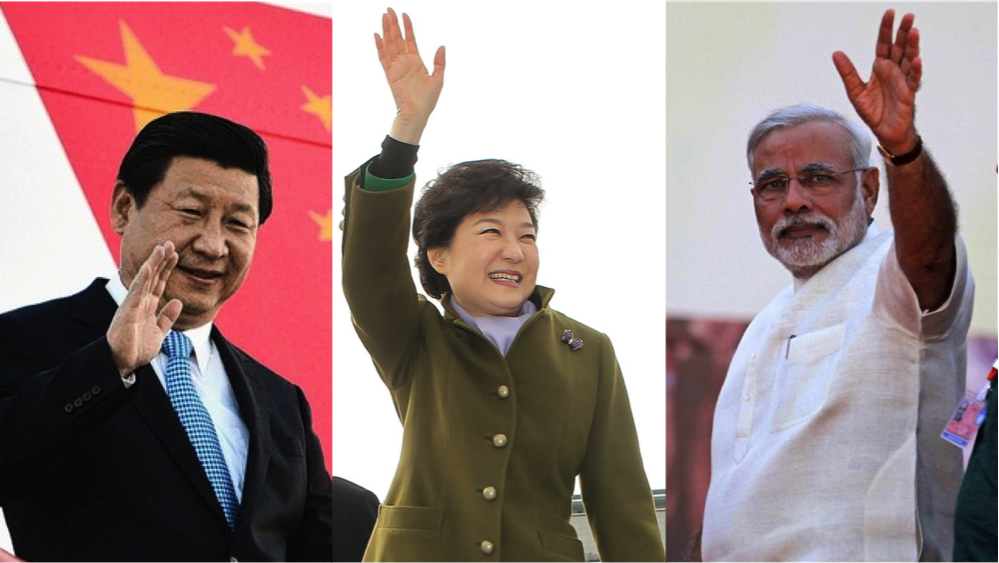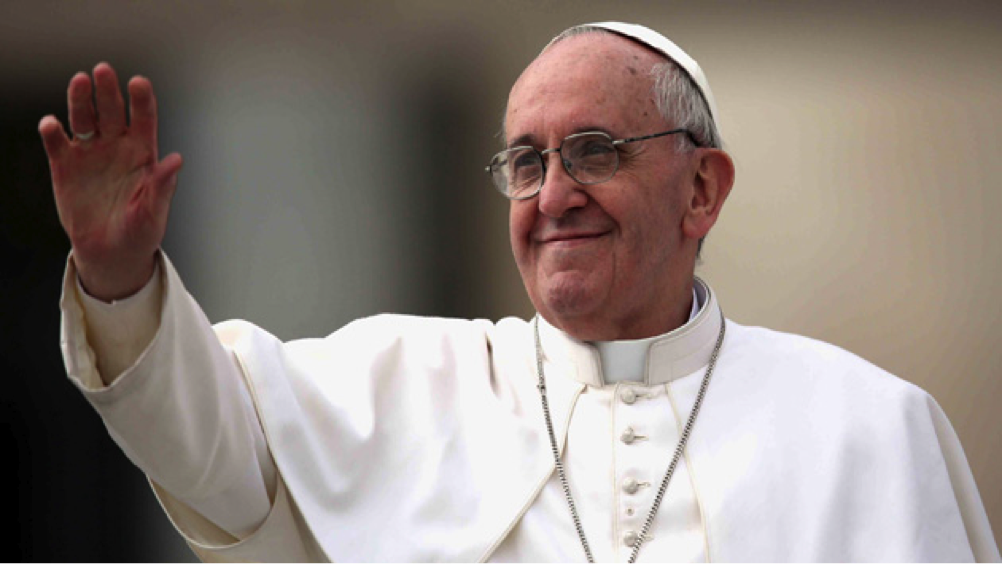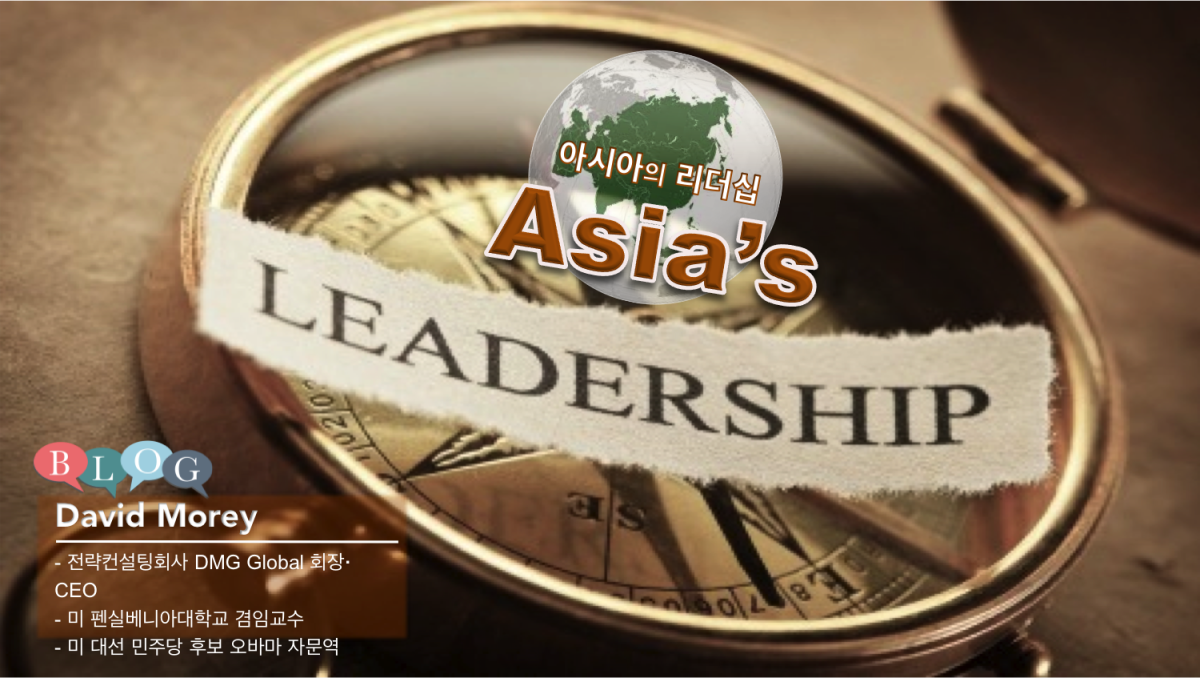열려있는 정책플랫폼 |
국가미래연구원은 폭 넓은 주제를 깊은 통찰력으로 다룹니다
※ 여기에 실린 글은 필자 개인의 의견이며 국가미래연구원(IFS)의 공식입장과는 차이가 있을 수 있습니다.
관련링크
본문
오늘날 세계에서 가장 빠르게 성장하는 지역인 아시아에서는 위대한 리더십에 대한 요구도 높아지고 있다.
현재 정부와 민간을 대표하는 세계 각지의 지도자들은 능력과 자질, 권력의 측면에서 각기 다른 면모를 보이고 있다. 리더십, 특히 아시아지역에서의 리더십은 오늘날 역사상 그 어느 때보다 큰 중요성을 띠는 요소임에 틀림이 없을 것이다.
이는 아시아의 리더들이 직면한 도전과제가 갈수록 복잡해지고 있으며, 이에 대처하기 위한 리더십에 대한 요구 또한 점증하고 있기 때문이다.
일례로, 시진핑 중국국가주석, 박근혜 대한민국대통령, 나렌드라모디 인도총리, 이세 명의 아시아지도자들은 모두 변화를 슬로건으로 내세워 집권에 성공했으며, 아시아의 미래를 좌우할 거대한 도전 속에서 각국을 이끌어가고 있다.

근래 중국의 가장 강력한 지도자로 평가되는 시진핑 주석은 강력한 부패척결의지를 시사하며, 저우융캉 전 공산당 중앙정치국상무위원, 쉬차이허우 전 중앙군사위부주석 등 기존의 성역을 깨뜨리는 과감한 행보를 보이고 있다. 현재까지 시진핑 체제는 강력한 제도 구축, 경제성장 촉진, 국가안보강화, 군사력 확대 및 당 최고위 인사에게도 엄격히 적용되는 법치확립에 역점을 두고 있다.
한국의 박근혜대통령은 대한민국 최초로 과반수 지지를 바탕으로 선출된 여성대통령이다. 여당이 지난 재보궐 선거승리로 확실한 과반의석을 확보하게 되면서 박근혜 대통령의 부담은 늘어났지만 동시에 새로운 기회도 제공되었다. 박대통령은 지금까지 강인함과 인간미가 공존하는 리더십을 구축해왔다. 한국의 가장 강력한 반공산주의 지도자중 한 명이었던 그녀의 부친과 모친이 모두 암살에 의해 사망하는 등 그녀가 성장과정에서 겪은 여러 고난은 박대통령을 강인하게 단련시켰다.
한편, 302명의 사망자를 낸 세월호 침몰사고와 관련한 박대통령의 대국민사과는 박대통령의 인간적 면모를 널리 부각시킨 계기가 되었다. 이제 관건은 박대통령이 이러한 강인함과 인간미를 발휘하여 향후 국가적 참사에 대한 대응능력 개선, 부패척결, 북한의 군사적 위협 대처, 중/일/ 미를 비롯한 여러 국가들과의 첨예한 외교사안 조정 등의 주요 과제를 얼마나 잘 풀어 가느냐에 있을 것이다.
변화의 공약을 내걸고 당선된 모디 인도 신임총리는 이제 인도의 글로벌 경제강국 부상을 위한 기초 작업에 힘써야 한다. 이를 위해 정치적 안정이나 사회적 통합을 훼손하지 않으면서도 개혁에 대한 국민의 지지를 이끌어내고, 자신이 속한 힌두교도 뿐 아니라 1억 5천만 명을 넘는 인도의 무슬림 인구 역시 아우를 수 있는 포용의 리더십을 증명할 수 있어야 할 것이다. 앞으로 모디 총리는 경제개혁과 성장을 이끌고, 인도의 인프라를 구축하며, 복잡한 자국의 외교정책을 성공적으로 수행해야 하는 숙제를 안고 있다.
시 주석과 박 대통령, 그리고 모디 총리, 이 세 아시아지도자들은 역사적인 도전과 기회에 직면해 있다. 그리고 이들이 지도자로서 성공할 수 있을지 여부는 다음과 같은 세 가지 전략적 질문에 어떻게 대응하는지에 달려있다.
첫째, 국가의 시스템을 변화시킬 수 있는가?
이 점에 있어서는 2008년과 2012년 미국 대선캠페인 기간 동안 우리가 자문했던 오바마 미 대통령이 고전하고 있다. 실제로 최근 미국의 유력지 포춘(Fortune)이 실시한 세계에서 가장 영향력 있는 리더 50인 설문조사에서 오바마 미 대통령(제44대)은 순위권에도 들지 못했으며, 1위에는 프란체스코 교황이 선정되었다.
프란체스코 교황은 카톨릭 교회의 2천년 된 해묵은 문화를 전략적이고 급격하게 변화시키고, 바티칸의 재무구조 투명화를 추진했을 뿐 아니라, 커뮤니케이션 전략과 능력을 발휘해 빈곤퇴치와 불평등 해소를 촉구하는 그의 간결하지만 강력한 메시지에 전 세계의 이목을 집중시킬 수 있었다. 그는 진정한 변화의 리더였다.
우리는 이를 통해 정치인이든, 기업인이든, 변화를 이끄는 이들, 즉 “현상 타파와 미래 개척에 뜻을 둔 이들(Insurgents)”만이 성공하는 리더가 될 수 있다는 사실을 알 수 있다. <편집자 주: 부연 설명하면 기득권을 가진 자(갑 또는 topdog)에 대항하는 반란군(Insurgent, 또는 underdog)의 강렬함으로 변화를 주도해야 한다는 뜻입니다.>
오늘날 변화는 그 무엇보다도 중요한 리더십의 덕목이다. 프란체스코 교황이 그토록 빠른 시간 내에 존경받는 리더로 부상한 이유도 바로 여기에 있다.

둘째, 바람직한 대타협을 가능케 하는 정치적‘중심’(working political ‘center’)을 도출하고 재정의(redefine) 할 수 있는가?
사실 세계 각지를 둘러보면 정부가 정치적 이해관계를 뛰어넘는 타협안을 도출하여 성공적인 사례를 이끌어냈던 경우를 종종 목격할 수 있다. 일례로, 엔리케페냐니에토 멕시코 대통령의 초당적인 ‘멕시코를 위한 협약(Pact for Mexico)’은 국민적 합의를 재조성하기 위한 초석을 쌓았다. 1980년대 미국의 경제회복을 위해 세금인상을 추진했던 로널드 레이건 전 미국대통령, 그리고 1990년대 메디케어 개혁과 성공적인 경제정책 수립을 주도했던 빌 클린턴 전 미국 대통령 역시 대표적 사례로 손꼽힌다. 이 뿐 아니라 다른 많은 사례를 보더라도 성공한 정부의 뒤에는 정치적 이해를 뛰어넘는 통합의 딜이 그 중심에 있었다.
셋째, 계속해서 도전할 수 있는가(play more offense)?
이는 매우 중요한 문제이다. 일례로 프란체스코 교황 역시 현 상태에 대해서, 재정의 남용에 대해서, 그리고 우리가 스스로 정의한 적에 대해서 항상 도전하라고 주문하고 있다.
정보 혁명의 동태적 진전과 급격한 변화의 광범위한 파급에 대응하기위해서 위에서 제기한 Insurgency 원칙 (principle of insurgency)은 2014년에 더욱 중요해졌다.
현재 성공적이라 평가받는 정치-기업의 지도자들은 모두 변화의 선도자들로서 수구 보수적 상황에 대해 끊임없이 공격적 도전을 하고 있다는 것은 우연한 것이 아니다. 성공한 지도자들은 미래가 어떤 모습이며 ,변화를 위한 핵심 과제가 무엇이고, 자기 자신과 리더십이 어떤 가치를 추구해야 하는지를 잘 인지하고 있다.
위대한 미래의 아시아지도자는 변화를 이끌 것이다. 전 세계적으로 유권자들이 현상유지에 대해 매우 회의적인 시각을 갖고 있기 때문이다. 또한 사소한 정치적 이해를 뛰어넘는 새로운 정치적 중심을 도출하고 재정의 할 것이다. 이러한 방법이 아니고서는 정부가 제대로 운영될 수 없기 때문이다. 그리고 끊임없이 시험하고 도전할 것이다. 바로 이것이 위대한 리더십에 대해 역사가 우리에게 가르쳐준 교훈이기 때문이다.
아시아의 위대한 국가들은 이제 위대한 리더십을 갈망하고 있다. 관건은 과연 이들 국가의 리더들이 이러한 역사적 소명에 귀를 기울일 것인가의 여부이다.
※ 데이비드모리(David Morey)는 미국과 아시아 각지에 진출해 있는 전략컨설팅회사 DMG Global의 회장 겸 최고경영자이다. 베스트셀러The Underdog Advantage의 저자이자 펜실베니아대학교(University of Pennsylvania)의 겸임교수로도 활동하고 있다. 전세계적으로 16건의 성공적인 대선캠페인에 자문을 제공한 바 있으며, 현재 세계 유수의 기업 CEO 및 리더들과 함께 일하고 있다.
Asia’s Leadership
Today, the world’s fastest growing region is calling for greater leadership.
At present, around the world, in both government and business, we see a wider and wider difference between the skill, quality, and power of our leaders. Arguably, leadership, particularly in Asia, makes more of a difference today than at any point in recent history.
This is true because the stakes for the leaders of Asia are higher—and so, then, are the demands of leadership.
Look, for example, at three of Asia’s national leaders: China’s Xi Jinping, South Korea’s Park Geun Hye, and India’s Narendra Modi. Each came to power as change leaders. And each leads large nations facing big challenge at the very center of Asia’s future.
In China, Xi—by recent historical standards China’s most powerful leader—has begun to tackle corruption issues and has boldly pursued major figures who were previously considered “untouchable”—such as Zhou Yongkang, a former member of the Politburo Standing Committee, and General Xu Caihou, formerly of the Central Military Commission. So far, Xi’s approach has been to create strong institutions, drive economic growth, bolster China’s national security, expand its military presence, and begin the transition to apply rule of law even to the party’s most influential figures.
In South Korea, President Park is the first woman elected to Korea’s highest office and the first Korean president to be elected by majority. Her party’s recent by-election victory, winning a larger legislative majority, puts new pressure on Park—but also creates new opportunities. To date, Park has defined her leadership by both toughness and compassion. And her steeliness was born from challenge: Park’s mother was killed by an assassin as, similarly, was her father, who himself was one of Korea’s most staunch anti-Communist and tough-minded leaders.
On the other side of the coin, Park’s national apology about the handling of the MV Sewol ferry disaster, which left 302 people dead, brought her human side out and in front of the nation. Now, the key will be how Park mixes this toughness and compassion in improving rescue efforts for national disasters, rooting out corruption, managing North Korean military threats, and balancing the difficult elements of foreign relations with and between China, Japan, the US, and other nations in and out of Asia.
In India, Modi, elected on a transformation platform, must build now a foundation for India’s emergence as a global economic power. This means winning support for reform without undermining political stability or social cohesion—demonstrating that he is an inclusive leader capable of working with Indians outside of his own Hindu base, including the nation’s more than 150 million Muslims. And now, Modi’s challenge will be to drive economic reform and growth, build India’s infrastructure, and successfully manage his nation’s increasingly complicated foreign policy.
For all three of these Asian leaders—Xi, Park, and Modi—the challenges and opportunities will be historic. And ultimately, the success of China’s, South Korea’s and India’s leaders will hinge on how they answer the three strategic questions below.
First, can these Asian leaders transform their respective national systems? This is where President Obama, who we advised in both the 2008 and 2012 presidential campaigns, is running up against the wall of history. For example, a recent Fortune magazine survey listed the world’s top 50 leaders and did not even mention the 44th President of the United States. Instead, the number one leader in the world today: Pope Francis.
To date, Pope Francis is a genuine transformation leader who is strategically and radically re-shaping the Catholic Church’s 2000-year-old culture, re-focusing the Vatican’s murky financial structure and using communications strategy and skills to rally global audiences to his simple, focused, and compelling message about fighting poverty and fixing inequality.
So today, the lesson in the political world, as in the corporate world, is that the only leaders succeeding are change leaders: Insurgents, focused on transforming an incumbent status quo and re-defining some part of the future. Today, more than ever, change is the fuel of great leadership. Pope Francis’ early and extraordinary success underlines this point.
Second, can these Asian leaders find and re-define a working political “center?” In truth, around the world, governments tend to succeed when they find some measure of compromise that rises above the interests of their respective political extremes. For example, look at Mexican President Enrique Pena Nieto’s cross-party “Pact for Mexico,” and the way it has begun today to re-shape a national consensus. Look at President Ronald Reagan’s willingness to ultimately raise taxes in pursuit of America’s economic recovery in the 1980s. And look at President Bill Clinton’s Medicare reform and successful economic policy making in the 1990s. Around the world, find success in government and you will find a deal within the political center that has somehow risen above, or been raised above, the pulling and hauling of politics.
Third, can these Asian leaders continue to play more offense? This is the all-critical question because, for example, the leadership lesson of Pope Francis is to constantly move onto the attack, against the status quo, against financial misspending, against an enemy that you yourself define.
Steven Jobs, a leader known for playing offense, literally invented our current company. Back in the 1980s, we were on our way to ultimately advising 16 winning global political campaigns. Back then, Jobs asked us to come talk to Apple about how to win a political campaign—because he loved the do-or-die reality of an election day, no excuses, no second chances. And Jobs loved the way we were advising insurgent candidates and helping them build insurgent strategies to play more offense.
This principle of insurgency has become even truer in 2014: Because of the dynamics of the information revolution and the power of exponential change. Today, it is no accident that the political and business leaders who are succeeding are change agents—playing offense against their respective status quos. For these successful leaders, this means controlling definitions—defining yourself and your leadership values, defining the “stakes” for change, and defining the future.
The next great leader of Asia will do all this: They will drive transformation, because global electorates remain increasingly dis-satisfied with their status quo; they will find and re-define a political center by rising above petty politics, because that is the only way government is working today; and they will play more and more offense, because history teaches us that this the way to lead greatly.
The great nations of Asia are calling for greater leadership. And the question is whether its leaders can heed this historic call.
David E. Morey is Chairman and CEO of DMG Global, a strategic consultancy with offices in the US and across Asia. He is the author of the best-selling book The Underdog Advantage and is Adjunct Professor at the University of Pennsylvania. Morey has advised 16 winning global presidential campaigns and today works with the CEOs and leaders of some of the world’s largest companies.
- 기사입력 2015년05월05일 19시53분
- 최종수정 2016년02월29일 10시45분
댓글목록
등록된 댓글이 없습니다.

